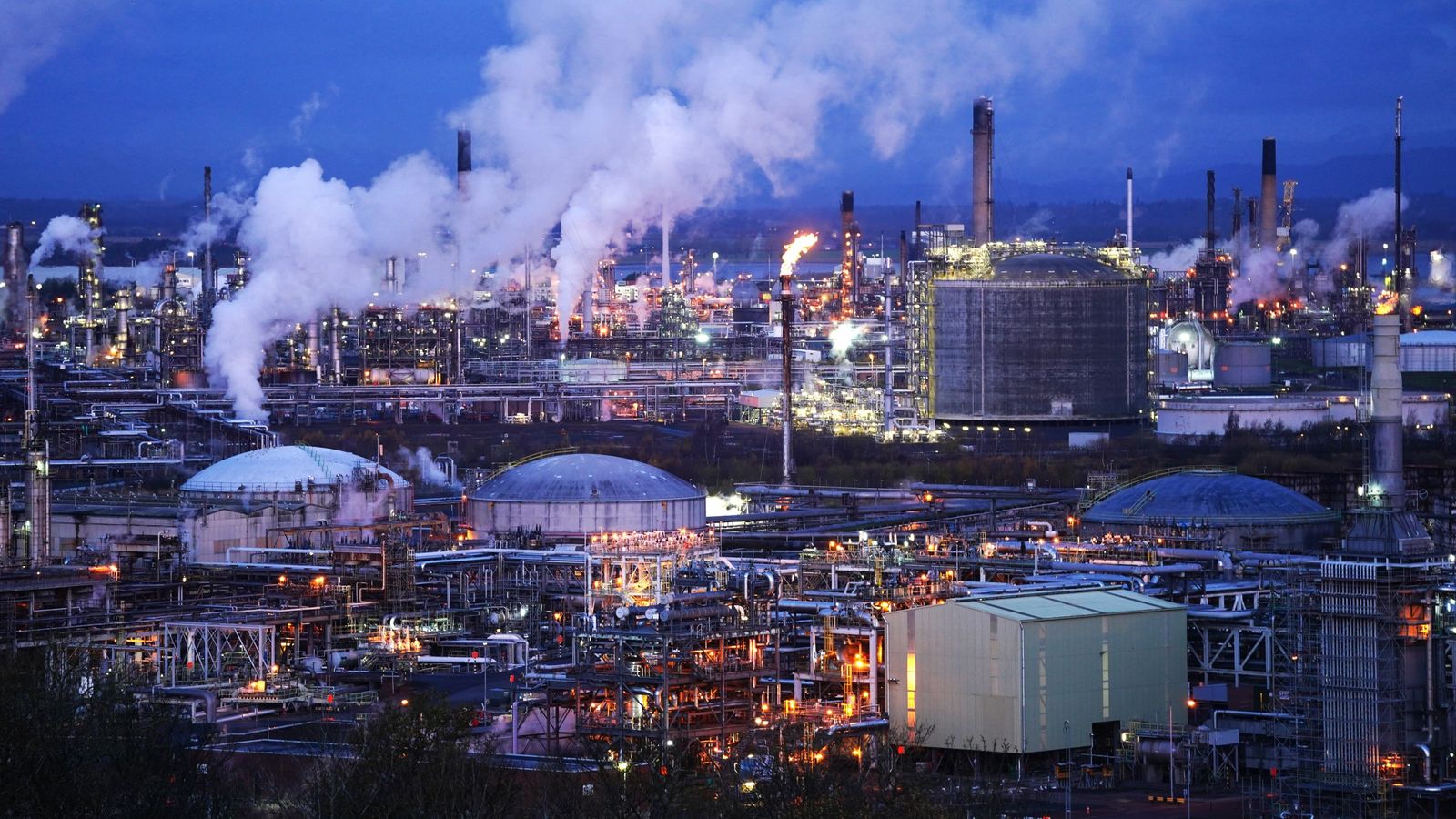Jobs
Scotland’s only oil refinery Grangemouth could cease operations – with hundreds of jobs at risk

Scotland’s only oil refinery could cease operations in 2025 – with hundreds of jobs at risk under plans announced by owners Petroineos.
The firm said the Grangemouth site has faced “significant challenges” due to global market pressures and the energy transition.
Petroineos is aiming to transform the site into a fuels import terminal, with the work expected to take 18 months.
The company said the refinery is expected to continue operating until at least spring 2025.
Around 500 people are directly employed at the Grangemouth site.
Union Unite said it would “leave no stone unturned in the fight for jobs”, while First Minister Humza Yousaf said “this will be a very worrying time for the workers that are impacted by this”.
Petroineos said it was “working closely” on the project with a “range of interested parties”, including the Scottish and UK governments, and said more information would be provided in “due course”.
Read more from Sky News:
How UK North Sea platforms are losing energy that could power a whole city
UN tells world ‘get a grip’ as 1.5C target being missed
Franck Demay, CEO of Petroineos Refining, said: “This does not change anything for our operation today, where it is business-as-usual at the Grangemouth refinery. We currently anticipate continuing refinery operations until spring 2025.
“As the energy transition gathers pace, this is a necessary step in adapting our business to reflect the decline in demand for the type of fuels we produce. As a prudent operator, we must plan accordingly, but the precise timeline for implementing any change has yet to be determined.”
The firm said the move will “safeguard the site as a national fuel hub for decades to come”.
The preparatory work will make it possible to import petrol, diesel, aviation fuel and kerosene into Scotland from vessels arriving via the Firth of Forth.
The company also intends to progress work to enable the conversion of its existing export terminal at Finnart on the Firth of Clyde – which is linked to Grangemouth by cross-country pipelines – into a diesel import facility.
Mr Demay added: “This is the start of a journey to transform our operation from one that manufactures fuel products, into a business that imports finished fuel products for onward distribution to customers.
“Throughout this process, our focus will remain on the safe production and reliable supply of high-quality fuels to our customers in Scotland, the north of England, and Northern Ireland.
“As we start to make this investment in preparing for a future transformation, we are equally committed to a regular programme of engagement with our colleagues about the changes we are making to our business.”
Click to subscribe to ClimateCast with Tom Heap wherever you get your podcasts
Unite said the plans “raise concerns for the livelihoods of our members”.
Sharon Graham, general secretary of the union, said: “Unite will leave no stone unturned in the fight for jobs and will hold politicians to account for their actions.”
Derek Thomson, Unite Scottish secretary, added: “Every option must be on the table in order to secure the hundreds of highly skilled jobs based at the Grangemouth complex for the long term.”
The Scottish Tories described the situation as “devastating” for the staff and a “hammer blow” for the national and local economies.
The Scottish Greens also criticised the move and said it was an “appalling way to treat workers”.
MSP Gillian Mackay said workers at the plant “are bewildered, betrayed and furious at finding out about this from a story on the internet long after shareholders were made aware.
She called for an “urgent summit to be held” and demanded the Grangemouth Just Transition Board share “what they knew and when”.
She added: “Make no mistake, we must move away from fossil fuels. But this is the exact opposite of a just transition.
The original Grangemouth refinery, situated on the Firth of Forth, was established in 1924 and was one of the first crude oil refineries in the UK.
It is one of six crude oil refineries in the UK and is the only one in Scotland.
It sources its raw materials from North Sea oil fields, imported via the Forties Pipeline System, and from elsewhere around the world, imported into a deep-sea terminal on the west coast of Scotland.
Friends of the Earth Scotland blamed the Scottish government for the announcement, claiming it had “failed to create credible transition plans with workers at the site”.
Just transition campaigner Rosie Hampton added: “Today’s announcement is, sadly, the inevitable consequence of the Scottish government’s repeated failure to grasp this reality and to put concrete transition plans in place with workers.”
When questioned later on Wednesday, the Mr Yousaf said the Scottish government was prepared to work with Petroineos and trade unions in order to “try to ensure a sustainable future for Grangemouth”.
He added: “This will be a very worrying time for the workers that are impacted by this.”
Asked if his government bears some responsibility for the situation, he said oil and gas licensing decisions are made by the UK government but stressed the importance of a “just transition” and “taking the workers with us on the journey towards a sustainable future”.



